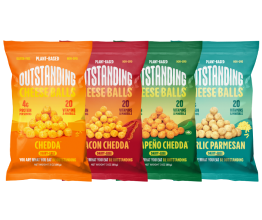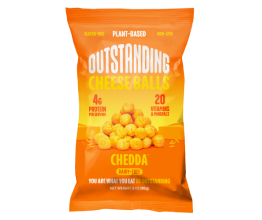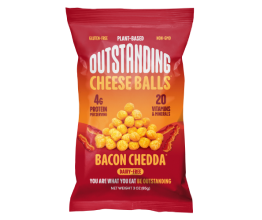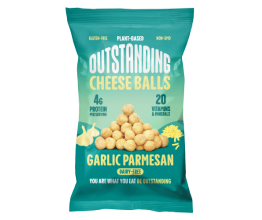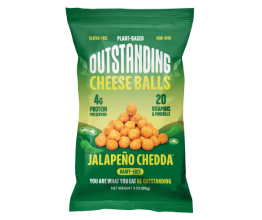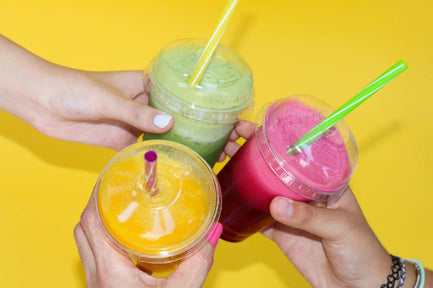How to Build an Environmentally Conscious Pantry
Welcome to 2022: As of last year, as a global community, we’ve set records in greenhouse gas concentrations, rising sea levels, and ocean heat. According to the U.N., we’re in a “now or never” moment — if we don’t start making changes soon, we’re destined to set in motion “cascading and irreversible climate effects.”
Sounds a bit intense, doesn’t it? Honestly, it is. But, that doesn’t mean that it’s game over. This isn’t a movie, and we aren’t sci-fi authors. Rather, we’re a company that’s passionate about helping our customers’ health — both through the food they consume and the world they live in.
That means choosing to be environmentally conscious both as a brand and as consumers ourselves. Believe it or not, the choices we make just within our pantries can make a difference.
Read on for clear, simple advice on how to gently tweak your pantry options to be a bit more environmentally conscious toward the world around you.
Choose Less
How often have you thought about landfills? If you’re like most of us, the answer to that is probably, “not often.” After all, since when does being environmentally conscious involve thinking about landfills?
If you’re lucky, you won’t have even seen one — but as of 2022, there were at least 1,250 landfills in the U.S. That averages to about 25 landfills per state, meaning there’s likely one relatively close to your home.
And speaking of close to home: Our kitchens, filled with foods that should (in theory) be filling our bellies — not our trash cans — are actually one of the biggest sources of waste in the average household. In fact, food and plastic waste make up 41% of the trash in American landfills, annually.
By choosing to consume less — less excess and less packaging — we’re able to have a direct impact on the landfills that are quite near to our homes and communities. This small environmentally conscious step also conserves the energy and resources used to produce, transport, sell, and ultimately dispose of excess food.
Choose Sustainable
Yes, it’s possible to build a sustainable pantry. Of course, this doesn’t mean that buying a high-quality jar of lentils will last you forever, as a high-quality sweater would. Rather, it means that you’ll be able to choose to stock your pantry in a way that limits unnecessary waste and poor production methods.
Choosing sustainably is a great way to shift toward an environmentally conscious mindset. It means gravitating away from single-use plastics and toward fair trade and sustainability-minded brands.

If you have a choice between an environmentally conscious company and one that has made no visible strides toward sustainability, choose the sustainable brand.
Likewise, try to gravitate toward those companies and foods that are plant-based.
Choose Plants
On your journey to building an environmentally conscious pantry, it may not be feasible to completely overhaul your diet to become a vegetarian or a vegan. That said, we do suggest trying to gravitate toward plant-based companies and options whenever you can.
Livestock production, unfortunately, has undeniable links to massive greenhouse gas emissions. In other words, it contributes directly to the ever-growing crisis of global warming. It also leads to thousands of deaths each year from its powerful negative impact on air quality.
As consumers, our reaction to this information doesn’t have to be to immediately stop eating meat. Rather, we can choose to slowly replace those meat-based products in our lives with viable plant-based alternatives.
Our Outstanding Cheese Balls, for example, are entirely plant-based — but they haven’t sacrificed any of the flavor that you know and love from traditional cheesy puffs. In terms of nutrition, they actually offer more protein and vitamins than traditional cheese balls.
Choose to Be Environmentally Conscious
Choosing to be environmentally conscious isn’t a simple on-off decision (like flipping a light switch or executively deciding to stop using plastic). Rather, it’s a mindset shift. The things that we’ve talked about — choosing less, choosing sustainable options, and choosing plants — are simply tools to help us adapt that shift.
Just as saying, “I’ll avoid eating sugar after 9 p.m.” is a great step on a larger weight-loss journey, choosing to gravitate toward plant-based foods or reduce our consumption is a great step toward a naturally environmentally conscious lifestyle.
At Outstanding Foods, we’re dedicated to helping you make that transition. Connect with us on Instagram and Facebook — we’d love to hear from you.
